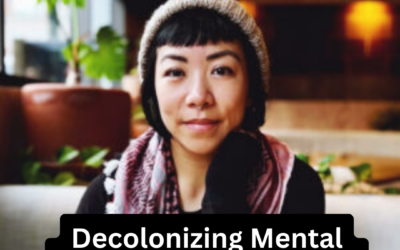Podcast: Play in new window | Download (Duration: 40:07 — 27.7MB)
Subscribe: Apple Podcasts | Spotify | Amazon Music
Challenge Your “Busy” Identity – Gain Consciousness Over Your Pace
Do you use a to-do list as a way to justify the need to be busy rather then the other way around? Idleness can breed discomfort and busyness seems to help to fill in the gap. Learn how conscious busyness and idleness can generate cognitive health and happiness, while unconscious busyness just adds to the stress trap.
As real therapists, we challenge you to not believe what you think. Inquire. It’s healthy to question the stories you tell about yourself and the world… update your model. Check out your story. See if what you tell yourself is still true, or has ever been true. If it’s right there is no problem in questioning, but if you are in a mental rut you wouldn’t know it unless you cache the map and look again.
In this episode we ask you, has being busy become an identity, a badge of honor, or is it simply a fear of being idle? Perhaps an antidote to loneliness? A way to be needed? A VIP? Are you choosing your schedule or feel as if you are being handed it? Is that true? 🙂
Dive deep into an exploration of how our relationship to busyness can distance us from ourselves and those around us.
Therapist Uncensored co-hosts Ann Kelley and Sue Marriott discuss how a sense of urgency, a desire for a sense of importance, stress, and discomfort are all interrelated in dealing with idleness in your everyday lives. We’ll talk about how you can keep your mind engaged in moments of idleness and how you can make the most of your resting state by truly being idle or through purposeful activity.
0:00-10:00 Introduction Why do our minds want to be busy? How is being busy a culturally dictated status symbol? Choice and sense of urgency effect Purpose, busyness and stress
The psychological discomfort of idleness despite the natural, evolutionary desire to choose it
10:00-20:00 Choosing idleness as a primal need to conserve energy Natural aversion to idleness without purpose The appeal of mindfulness through its intent to bring you something Keeping your brain busy with new skills keeps it healthier in the long run (processing speed, episodic memory)
20:00-30:00Differentiating being full vs. being busy Importance vs. urgency Your brain is always working, even (or especially) in idle times How best to use your resting state
30:00-40:00Learn to be idle rather than occupy your idle time OR move and be active (purposeful l idleness vs. purposeful activity) Boredom and stimulation, meaning and purpose Wrap up and outro
Resources:
Being busy may be good for your brain! Smithsonian Magazine.
The Challenges of the Disengaged Mind
The Busier the Better: Greater Busyness Is Associated with Better Cognition
Want to support this work and stay in touch?
Join our email list, subscribe to Tunes here or join our Facebook page here to get updated popular articles on these subjects of interest. Biggest help of all is to leave us a review, they are so useful as we go forward fine-tuning what is most helpful for our audience and it literally inspires us to keep going in this hobby of love!
New to all this? Start with Episode 59-61 for the Spectrum of Attachment and how to use the research in day to day settings, and follow that with Episode 66 where a single non-therapist relates how she uses this material NOT in a relationship in a hilarious feedback session where she tells us how we are doing.
Be sure you’ve checked out our free video, Modern Adult Attachment 101 to learn more and to easily share the basics of this science and what to do with it with others!














